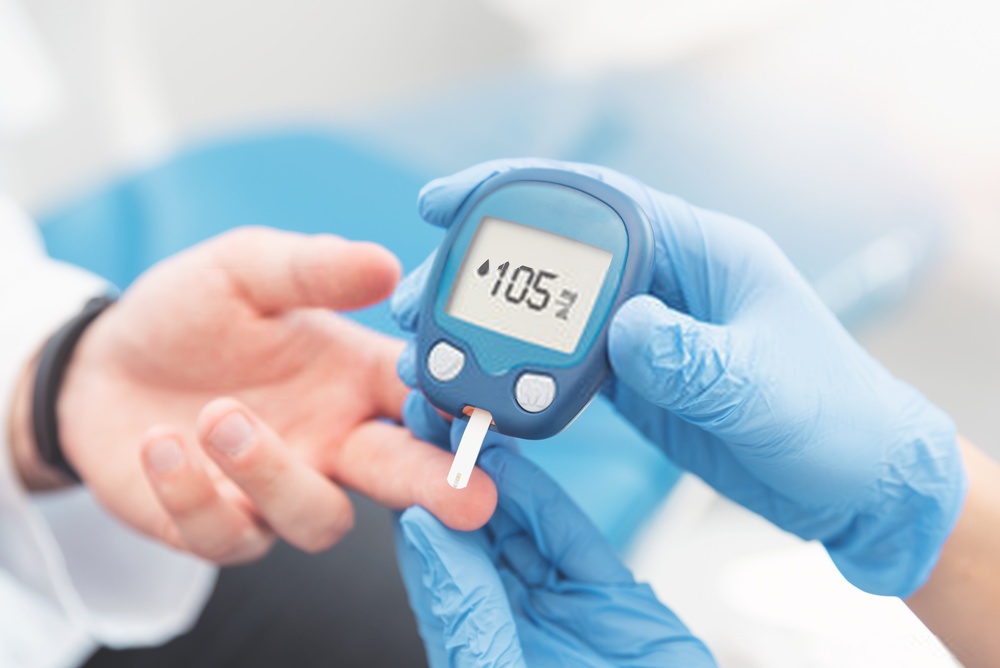Men with diabetes are at a greater risk of erectile dysfunction, or male impotence, especially if their diabetes is not well controlling.
There are several effective treatments available.
Discuss this problem with your doctor as soon as you notice a change.
What is erectile dysfunction?
It related erectile dysfunction to blood circulation and the nervous system. Poorly measured blood sugar levels can lead to damage of nerves and tiny blood vessels. A man’s ability to get an erection firm enough to have it can hinder sensual intercourse if the nerves that control intimate stimulation and response are damaged. High blood pressure is one of the major causes of ED. It hurts the artery by making them thicker. It causes reduced blood flow to the male reproductive organs, which may cause erectile dysfunction.
Causes of erectile dysfunction
Physical and psychological factors can cause ED, including:
- Stress, anxiety, and nervousness
- Problems in relationships
- Poor health
- Drinking too much alcohol,
- Cigarette smoking
- Some medications
- Some operations
Low levels of the male hormone testosterone.
Physical erectile dysfunction happens over months or years and is often a gradual loss of function. If erections still occur spontaneously overnight or in the morning, this shows that the problem may be psychological.
Etiology
The causes of ED are many but fall into two categories: organic or psychogenic. We can subdivide the organic causes into five categories: vascular, traumatic/postsurgical, neurological, endocrine-induced, and drug-induced. Examples of psychogenic causes are depression, performance anxiety, and relationship problems. In people with diabetes, the major risk factors are neuropathy, vascular insufficiency, poor glycemic control, hypertension, low testosterone levels, and possibly a smoking history.
The Connection between Diabetes and ED
Erectile Dysfunction is failing to get or maintain an erection firm enough for intimacy. Due to how diabetes changes your blood flow, between 35% and 75% of men living with diabetes will encounter some level of ED during their lifetime. Most doctors believe that this is because of the influence on your blood vessels and nerves when living with diabetes, although the definitive distinction is still unknown.
Because of the high prevalence of younger men with diabetes experiencing ED, it is often one factor that identifies undiagnosed cases. If you’re currently coping with ED, are 40 or younger, and have not been diagnosing with diabetes in the past, call your doctor today. It’s essential that you fully understand what’s causing your erectile dysfunction to treat it properly. Treat your ED or impotence issue by using Sildigra 100 Opinie or Sildalist.
Why are men with diabetes more likely to have Erectile Dysfunction?
Although the causes of ED are several and complex, one of the primary reasons it’s more common in men with diabetes is that long-term high blood sugar levels can cause damage to nerves and blood vessels—including those serving the male reproductive. So even if a man has normal testosterone levels and his desire for intimacy is acceptable, he still may not get a firm erection.
Another way diabetes can prevent arousal is by suppressing the production of the substance that stimulates the erectile tissue in the male reproductive organs to fill with blood. When a man becomes sensually aroused, a neurotransmitter called nitric oxide gets delivered into his bloodstream. Nitric oxide makes the arteries and muscles in the male reproductive organs relax, allowing more blood to flow into the male reproductive and causes an erection.
When blood sugar levels get too long, it produced less nitric oxide, which can mean there’s not enough blood flow to the male reproductive organs for a firm erection. For men with diabetes who struggle with swings in blood sugar levels, this can be a problem.
Also, having diabetes (primarily type 2 diabetes) or being overweight (or both) doubles the chance that a man will have low testosterone, which can mean less sensual desire and fewer and weaker erections.
What are the future of diabetes and erectile dysfunction?
There are many advances in this field. Better medicines, implants, vacuum devices, and suppositories have all developed options for diabetic men with ED.
Gene therapy is not testing, and at some point, may offer a permanent therapeutic approach to tackling diabetes and erectile dysfunction.
Erectile Dysfunction in Men with Diabetes
Never Damage and Blood Flow,
When blood sugar levels are out of control, nerve and blood vessel damage occur throughout your body. Nerve damage breaks down the ability to turn sensual stimulation into an erection. Poor blood circulation reduces blood flow to the male reproductive organs. Together it affects your ability to get an erection rigid and lasts long enough for intimate satisfaction.
Improve your intimate function,
By taking specific steps, you can address some problems that may play a role in ED. These contain:
- Controlling blood sugar
- Eating a heart-healthy diet
- Exercising regularly
- Losing excess weight
- Quitting smoking
- Cutting back on alcohol
In addition, if you take any medications that contribute to erectile dysfunction, your provider may switch you to a different medication that has less impact on your intimate performance.
If changes like these don’t sufficiently address your ED, your provider can talk with you about medications and assistive devices that support your intimate performance.
Learn about your ED medicines
This might be another reason to talk to your doctor. You may unknowingly take a medication that causes reproductive side effects. Some antidepressants or even anti-blood pressure medicines can cause ED as a side-effect. Get an idea of the side effects of the drugs that you are taking from your doctor.
Watch your heart
Erectile dysfunction negatively affects men’s quality of life, whatever their age. After several years of diabetes, change and damage to vessels and nerves essential to achieve a normal erection. Try Vidalista 40 and Tadalista medication to give a strong erection.
ED, the inability to get or maintain an erection for sensual intercourse, is common in men with diabetes. Diabetes, exceptionally high blood sugar levels, can damage blood vessels and nerves that control erections.
Where to get help
- Your doctor
- Your diabetes specialist
- Diabetes educator
- Community health center
Hello, I’m Judith Noland, and I’m Healthcare Provider. I’m sharing blogs on different Topics such as Men’s Health, Healthcare tips and Men’s Health care products. If you want to know information about men’s health topic, visit our website once time and save you time.

